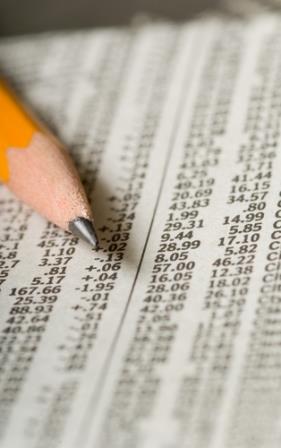 Most investors know how to answer the question "What is an ETF?" in a very basic way - but knowing all the details of what an exchange-traded fund offers can add a lot of value to your portfolio.
Most investors know how to answer the question "What is an ETF?" in a very basic way - but knowing all the details of what an exchange-traded fund offers can add a lot of value to your portfolio.
The simple definition of what an ETF is, according to Investopedia, is a basket of assets or a commodity that trades on a stock exchange. An ETF's price can change quite a bit on an intraday basis, depending on how much it is bought or sold each day.
But there's more to answering "what is an ETF" than that. How are ETFs traded? What makes them different from other investing vehicles? Are they better or worse than stocks, bonds, mutual funds, and other options?
Here's an in-depth look for investors to get a real grasp on exactly what ETFs are, their benefits, their weaknesses - plus a few ETFs for you to strengthen your portfolio today.
What Is An ETF: What Investors Need To Know
ETFs give investors the ability to invest with the right combination of diversification and focus to meet individual investing goals. They can choose a fund that follows:
- A major index, such as the Dow Jones, S&P 500, or Nasdaq
- Various sectors of the equities market (small caps, large caps, value, and growth)
- International ETFs that follow either a region, such as Europe or the Pacific Rim, or are country-specific, such as covering the market in the U.K., Australia, or Japan
- Industry ETFs that follow sectors like energy, technology, or biotechnology
- Market niche ETFs (some examples include real estate investment trusts and commodities such as gold)
Besides a tailored diversity and focus, there are several other advantages to using ETFs simply based on how they operate as investing tools. Here are a few:
- ETFs trade like a stocks. For instance, as an ETF's price fluctuates throughout the day, investors can react to steep price hikes or dips immediately to increase their return on an investment - or to shore up losses. In contrast, mutual funds are only priced at the close of business and cannot be traded on an intraday basis.
- ETFs cost less in fees than mutual funds, but share positive aspects such as diversification and low turnover. They have a low expense ratio.
- Exchanging ETFs allows investors to defer taxes until an investment is sold, so they are more tax-efficient compared to other investment options like mutual funds. Investors concerned with deferring taxes should choose ETFs that don't pay dividends and don't have large capital gains distributions.
Despite all the perks of ETF ownership, there are also a few disadvantages of which investors should take note...
- ETFs must be traded through brokerage firms, and each trade is charged a commission. Those who trade frequently may find that the extra cash they spend in brokerage fees counteracts other savings.
- These funds don't have managers, like mutual funds. As such, they require more investor attention. That means ETFs may not be the best choice for more passive investors that make regular small investments. Such a group may do better with traditional mutual funds.
- ETFs traded on less popular indices may be more expensive and involve more risk.
ETFs to Consider
Now that we can fully answer the question "what is an ETF," it's time to pick some of the best ones to invest in now.
With hundreds available, this can prove to be a tricky task.
Those who like to follow major exchanges should take a look at State Street Global Advisor's (SPDR) funds, such as SPDR S&P 500 ETF Trust (NYSE Arca: SPY), which corresponds to the price and yield performance of the S&P 500 Index, or SPDR Dow Jones Industrial Average ETF (NYSE Arca: DIA), which corresponds to the price and yields performance of the Dow Jones Industrial Average
If you want to explore foreign markets, possible choices might be Wisdomtree Pacific ex Japan High Yield ETF (NYSE Arca: AUSE), which follows the price and yield performance of the WisdomTree Australia Dividend Index, or the WisdomTree India Earnings Fund (NYSE Arca: EPI), which tracks the price and yield performance, before fees and expenses, of the WisdomTree India Earnings Index.
Even better, check out the latest investing advice from Money Morning Special Contributor Michael E. Lewitt - just last week, he highlighted two ETFs that are dominating broad emerging markets exposure.
And commodity investors can look to these key gold ETFs: SPDR Gold Trust (NYSE Arca: GLD) and iShares Gold Trust (NYSE Arca: IAU).
NEXT: According to Barron's, a whopping 85% of all investor "sell" or "exchange" decisions are wrong. But you can beat the 85% with these simple steps...


